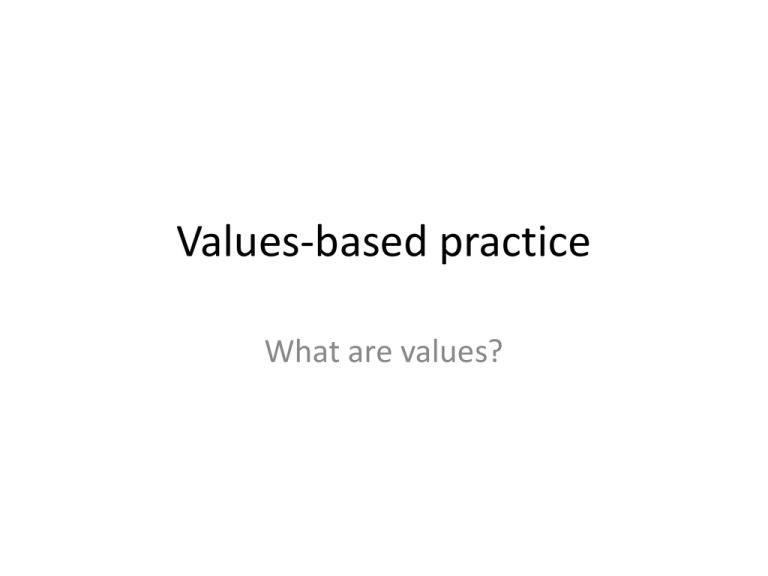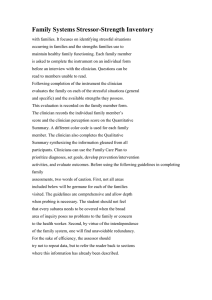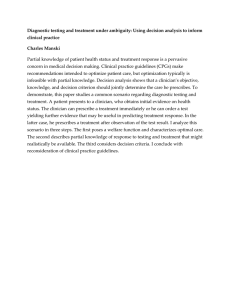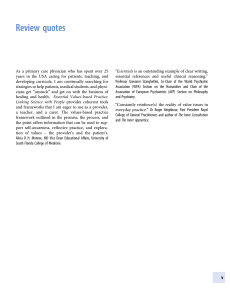Values-based practice What are values?
advertisement

Values-based practice What are values? Where do our values come from? Customs Traditions Family Our peers Education Community Church etc Our values guide what we do Values are principles and beliefs that guide our actions But every human being is different We share some values We hold some values that are different Clinicians operate in a framework of shared values Shared between Patient Clinician Family Colleagues Management Society Values-based practice clinical skills • Awareness of values including diversity of values • Knowledge of values including instinctual knowledge and knowledge derived from research • Reasoning about values including ethical reasoning (not simply deciding what is right) • Communication skills for discovering values Knowledge of values How do clinicians make decisions? Evidence Experience What is Evidence-Based Medicine? … the integration of … ~ best research evidence ~ clinical experience ~ patient values Making the best clinical decisions The best clinical decisions are based on the best available scientific evidence, the experience of the clinician and on the values relevant to the individual patient situation In Tanzania not all evidence is available yet… Values-based practice and political democracy • Both start from the unique individual – “one person, one vote” in a political democracy – “one person, one unique set of values” in the values democracy of values-based practice. • Both rely on good process rather than preset “right outcomes” to guide decision-making Was it a good decision? Sometimes in clinical practice the best decision may have the worst outcome But providing the decision making process was as good as it can be, you made the right decision Why is this important? Every individual is different Experience guides when/how to use evidence Some case examples In each case a woman attends a health centre and tells the clinician that she is pregnant… Mwajuma Age 14 Elisabeth Age 25 – Known to have had difficulty conceiving Mama Maganga Age 42 Known to have 7 children and a very poor obstetric history with stillbirths The first question If you were the clinician who saw the patient when she first says she is pregnant, what would your first question be: – To Mwajuma? – To Elisabeth? – To Mama Maganga? Every person is different To establish the relationship with your patient you need to understand her values in order to plan her care The more you understand and the more you interact with the patient, the better the decision Self-awareness: our values • Think about the emotions you felt when you saw those images of 3 pregnant women • Use these feelings to help you uncover some of your own values about pregnancy • Be honest – this is not about judgements Clinician values (1) • A woman who is 18 weeks pregnant is brought to your care, haemorrhaging PV What are the values that underpin your immediate actions? Clinician values (2) • As you prepare for curettage you discover the remains of a stick in her vagina • What values affect the way you act? Case #2 • You are off duty. You come across a man lying on the ground seriously injured. What are your values telling you to do? • But you have been to a party and had a few alcoholic drinks. Now what do you do? • You discover the man is a robber who has killed a home owner. Case #3 • A man comes to you with an STD. Do you treat him? • You find out he has had sex with children. Does your approach to the man change? Values are action guiding • When in a dilemma, ask yourself “what is the essential aspect of a case?” • Your values guide your actions • Even when you have mixed emotions about a case • The quality of the decision is more important than the outcome


